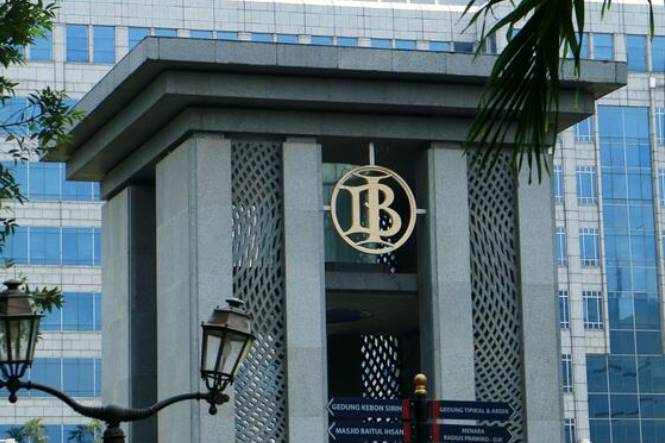Introduction
Indonesia, with its vibrant economy and developing financial markets, has witnessed a surge in the popularity of foreign exchange (forex) trading. This financial derivative has granted investors and traders access to global financial markets, facilitating currency exchange and speculation. Navigating the intricate world of forex trading requires an understanding of the key player in Indonesia’s financial landscape – the central bank, Bank Indonesia (BI). BI’s pivotal role in currency management, monetary policy, and financial regulation has a profound impact on forex activities within the country.

Image: www.sahamok.net
Central Bank of Indonesia: A Guiding Hand
Bank Indonesia, established in 1953, serves as the central bank of the Republic of Indonesia. It is entrusted with the crucial task of maintaining the stability of the financial system, regulating monetary policy, and managing the nation’s currency – the Indonesian rupiah. BI’s overarching goal is to achieve and maintain economic stability through prudent monetary policy measures.
Forex Trading Regulation
In Indonesia, forex trading is governed by the strict regulatory framework established by Bank Indonesia. The central bank has implemented a comprehensive set of regulations to ensure the orderly functioning of the forex market, protect investors, and prevent financial instability. These regulations span various aspects of forex trading, including:
- Licensing and registration requirements for forex brokers
- Capital adequacy and risk management standards for brokers
- Minimum margin requirements for traders
- Reporting and disclosure obligations for brokers
- Prohibitions on certain trading practices, such as market manipulation
By implementing these regulations, BI aims to create a fair and transparent trading environment, safeguard the interests of investors, and prevent systemic risks within the forex market.
Monetary Policy and Currency Management
One of the primary functions of Bank Indonesia is to formulate and implement monetary policy. Monetary policy refers to the set of tools and mechanisms used by the central bank to influence the money supply and interest rates within the economy. BI’s monetary policy decisions have a direct impact on the forex market, as they affect the value of the Indonesian rupiah relative to other currencies.
In managing the exchange rate, BI employs various monetary policy instruments, such as:
- Open market operations – buying or selling government securities to influence the supply of money in the financial system
- Changes in the reserve requirement – the percentage of deposits that banks must hold in reserve at the central bank
- Interest rate adjustments – setting the benchmark interest rates that influence lending and borrowing costs throughout the economy

Image: www.wsj.com
Forex Indonesia Central Bank Indonesia
Conclusion
Bank Indonesia plays a pivotal role in Indonesia’s forex market, ensuring its stability and protecting investors through a comprehensive regulatory framework. The central bank’s monetary policy decisions and currency management strategies influence the value of the Indonesian rupiah, impacting the trading environment for forex traders. Understanding BI’s role and regulations is crucial for anyone engaged in forex trading in Indonesia. By adhering to the regulatory guidelines and staying informed about BI’s monetary policy, traders can navigate the forex market with greater confidence and mitigate potential risks.






